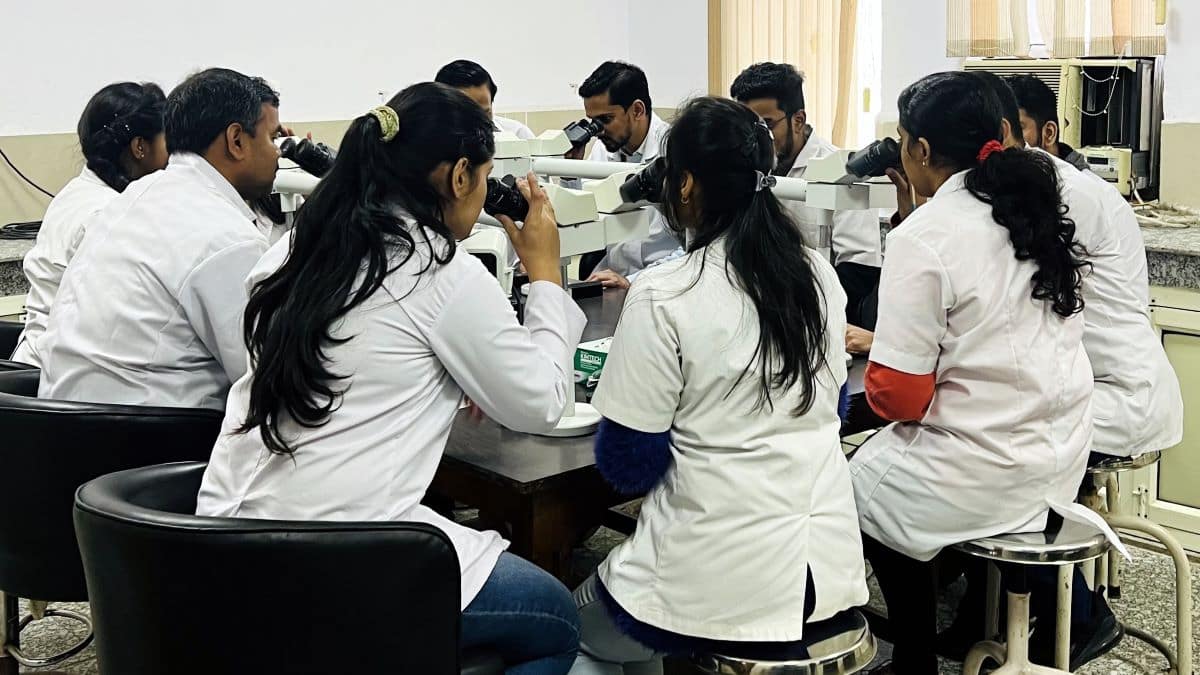ICAR PhD stipend set for ‘substantial increase’ at 4 agriculture deemed universities
Musab Qazi | September 2, 2025 | 10:56 AM IST | 3 mins read
Even with the hike, the new ICAR PhD fellowship will still be lower than what UGC NET JRF, SRF holders get. Hike announcement in a week

ICAR Fellowship Hike: The Indian Council of Agricultural Research (ICAR) has decided to hike the institute fellowship for PhD students at its four agriculture deemed universities and make it uniform across the institutes.
While ICAR, the apex body for agricultural education and research, didn't reveal the revised amount of emoluments, it said that it will be a "substantial increase" though still less than the fellowships awarded to students qualifying national tests, such as the University Grants Commission–National Eligibility Test (UGC NET), Biotechnology Eligibility Test (BET) and the council's own ICAR All India Competitive Examination (AICE) - JRF/SRF (PhD). The official notification about the new rates will be issued in a week.
"We have taken a conscious decision to increase the institute fellowship. It will be a substantial increase, but it won't be at par with those provided by the department of biotechnology (DBT) and department of science and technology (DST). We can't make it equal, as those selected in a national-level exam should have an edge," an ICAR official told Careers360.
The institute fellowship awarded at ICAR's deemed universities - Indian Agricultural Research Institute (IARI Pusa), National Dairy Research Institute (NDRI), Karnal, Indian Veterinary Research Institute (IVRI), Izatnagar (Bareilly) and Central Institute on Fisheries Education, Mumbai - is meant for the PhD students who don't avail of other fellowship schemes run by various central government agencies, including ICAR. However, the amount varies by the institute.
ICAR agriculture research fellowship
The ICAR scholars currently get a monthly aid of Rs 28,000 for the first two years of their doctorate programme, and Rs 31,000 in the third year. Their peers at NDRI Karnal, on the other hand, receive only Rs 25,000 and Rs 28,000, during their first-second and third years, respectively.
By comparison, the fellowship rates for those who qualify the UGC NET or CSIR NET are much higher -- Rs 37,000 per month for junior research fellows (JRF) and Rs 42,000 for senior research fellows. However, there's a disparity in the duration of the fellowships. For instance, UGC NET fellows are supported for five years, while ICAR only pays scholars for three years.
"There's a huge difference between the institute fellowship and the other ones. There was a demand to bring them at par, as the students are studying at the same institutes. While we have reduced the gap, we believe that there should be some incentive for students to study [for the national tests]. Otherwise, there won't be any competition," said the ICAR official.
While the ICAR didn't provide exact data of the scholars availing various types of financial aid, it estimates that around 40% of PhD scholars are receiving the higher fellowship amount.
Scholars demand tuition fee parity
While the decision has brought some relief to ICAR scholars, they are now hoping for parity in tuition fees at the four deemed-to-be agricultural universities.
"The institute fellowship should be brought at par with JRF/SRF. If someone can't complete a PhD in three years, there should be a provision to support them for an extended period. As we have spent several years in education, there are monetary expectations from our families," said a PhD scholar from NDRI.
The scholar also pointed out that IARI charges considerably lower fees compared to the three other deemed universities. While there was a fee hike announced at all deemed universities in 2023, IARI had rolled it back following an agitation by students.
Follow us for the latest education news on colleges and universities, admission, courses, exams, research, education policies, study abroad and more..
To get in touch, write to us at news@careers360.com.